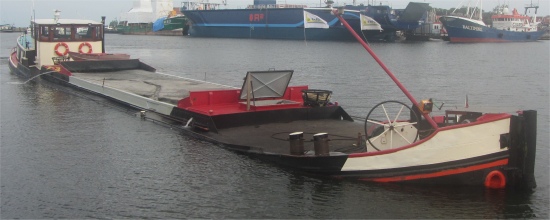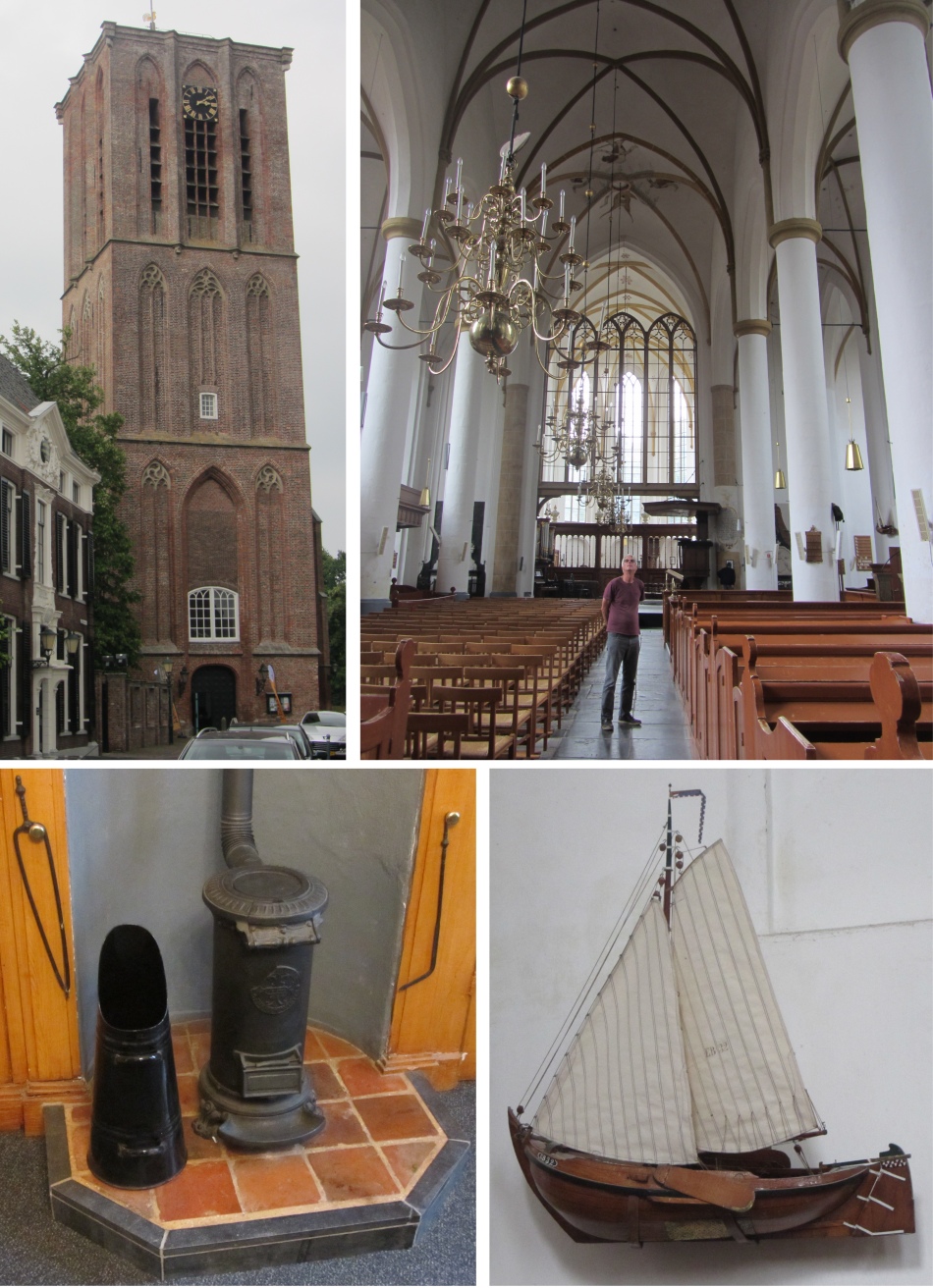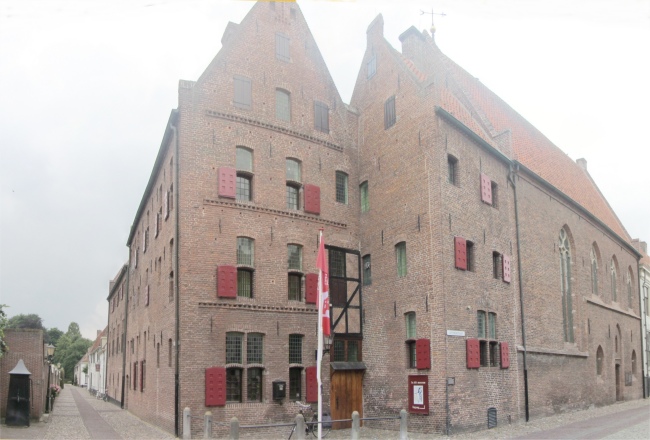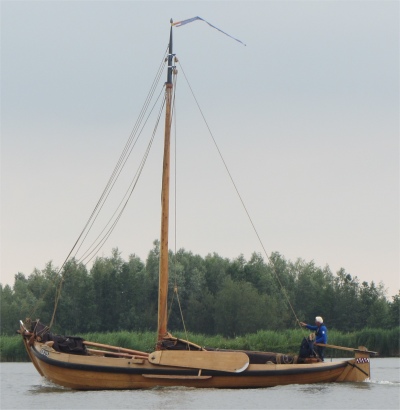
Botter on the Ketelmeer
|
I came across the old man we had seen yesterday, he was delivering more ropes to his boat. He excitably told me that the king was in Urk today, visiting the town and the Fishing School. The last time royalty had visited Urk was over twenty years ago. That explained all the lifeboats, police boats, helicopter and choirs. I chatted with the man for a while, and mentioned that we were heading to Elburg. He informed me it was a beautiful town, but advised to stay well clear of the banks going down the narrow channel, "It gets very shallow there." I informed him we had left money for the harbour master, and the kind chap would advise him when he put in an appearance.
As we parted from our berth, a police boat came over to inspect us. "English?" shouted one of the uniformed occupants when he spotted our ensign. I indicated we were, and he waved us on.
An hour later we were gilling about waiting for the Ketelbrug to open, carefully keeping clear of the barges that were hurtling through on their way to the lock at Lelystad. It was a good 20 minutes before we were through, and then we glided past the islet of Ijsseloog down the beautiful Ketelmeer before taking the right hand channel into the Vossemeer. If we had not turned right we would have entered the River Ijssel.

Serene Vossemeer
|
The narrow channel passing down behind Flevoland was a wider version of the Norfolk Broads, very serene and picturesque, until the rain came down as we approached the Roggebotsluis. We then entered the stretch of water known as the Drontermeer, populated by myriads of swans. Just before the next bridge we turned left and headed up a channel into Elburg. There was no marina as such, just a very long pontoon with facilities at either end of it. We moored about half way along the pontoon, and once I'd paid the harbour master, we walked up to town, passing the pretty Haven well stocked with botters, traditional flat-bottomed fishing boats, and crossed the moat that surrounded the old town. From an aerial perspective, the old town resembles a large pillow surrounded by a moat, in actual fact a pillow 250x350m.
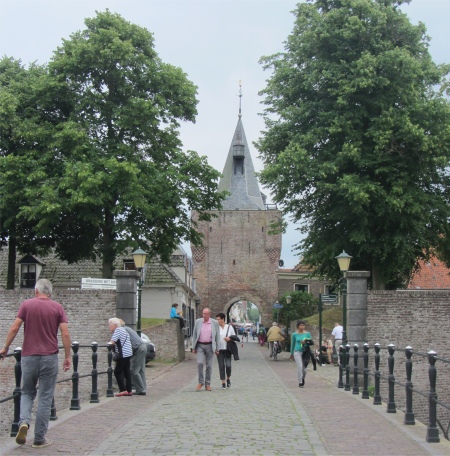
Approaching the Vischpoort
|
The earliest written record of Elburg is from 796 AD. Between 1392 and 1396, Elburg was rebuilt after a flood in the form it is seen today, with a moat and a city wall, together with a gridiron street plan. This rapid rebuilding was expensive, indicating that Elburg was reasonably affluent in medieval times. The town was granted town status by Earl Jan van Geel early in the 14th century. There is a record that Elburg got its fishing rights granted in 1313. In 1367 the city was recorded as a member of the Hanseatic League, a cooperative alliance of merchants and cities who together protected and expanded their trade.
Throughout the centuries, Elburg remained a fishing and farming centre until the end of World War II. Unlike many other Dutch towns, Elburg had refused to use city funds to build a railroad station in 1863. Because the land owners were asking unreasonably high prices for the right of way over their property, the track line Utrecht-Amersfoort-Zwolle bypassed Elburg. As a consequence, Elburg became less attractive for manufacturers compared with neighbouring places like Harderwijk. In addition, the closing off of the Zuiderzee in 1932 meant an end to the fishing industry of Elburg, since the former salt water bay gradually became a fresh water body. Therefore, since 1956, the city concluded that only tourism would be the most viable sector for the local economy. Because of its favourable position both on the edge of the canal and near the Veluwemeer, tourists have made it a popular tourist destination.
We entered the old town via the Vischpoort, a Medieval defensive tower. Strolling down Vischpoortstraat, a street bustling with tourists, we came across Beekstraat which intersected at right angles to form the main square, the Vischmarkt. Although the "square" was not a square in the traditional sense, it was quite obviously the throbbing centre of the town, a hub of cafes and restaurants all eager to empty the pockets of the hordes of tourists.
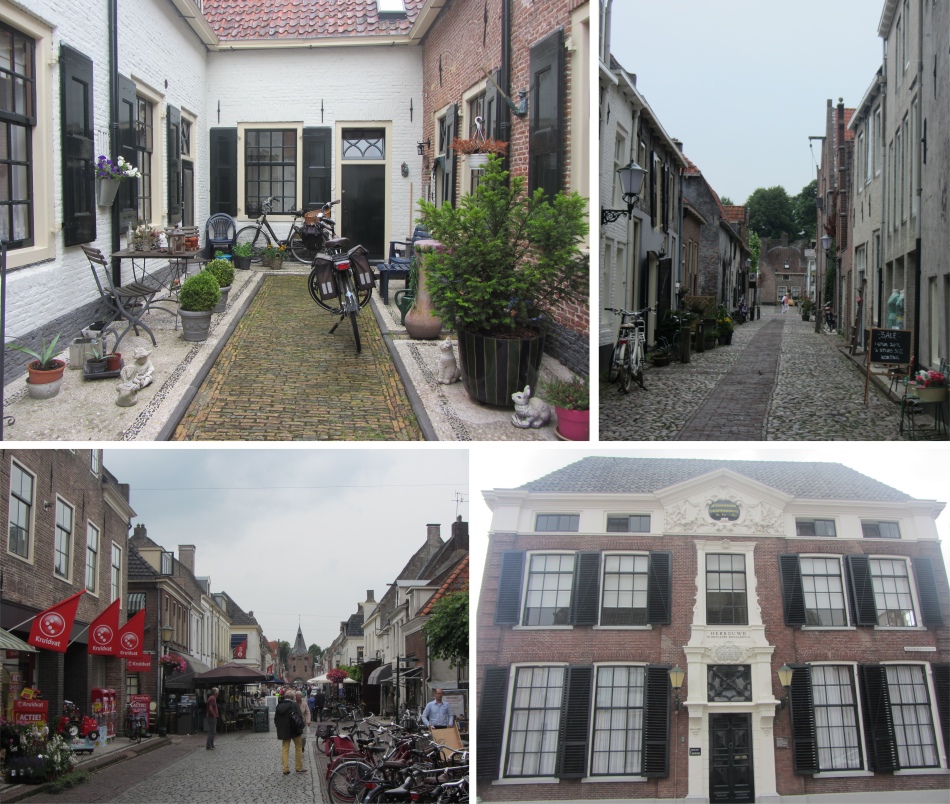
Streets of Elburg
|
